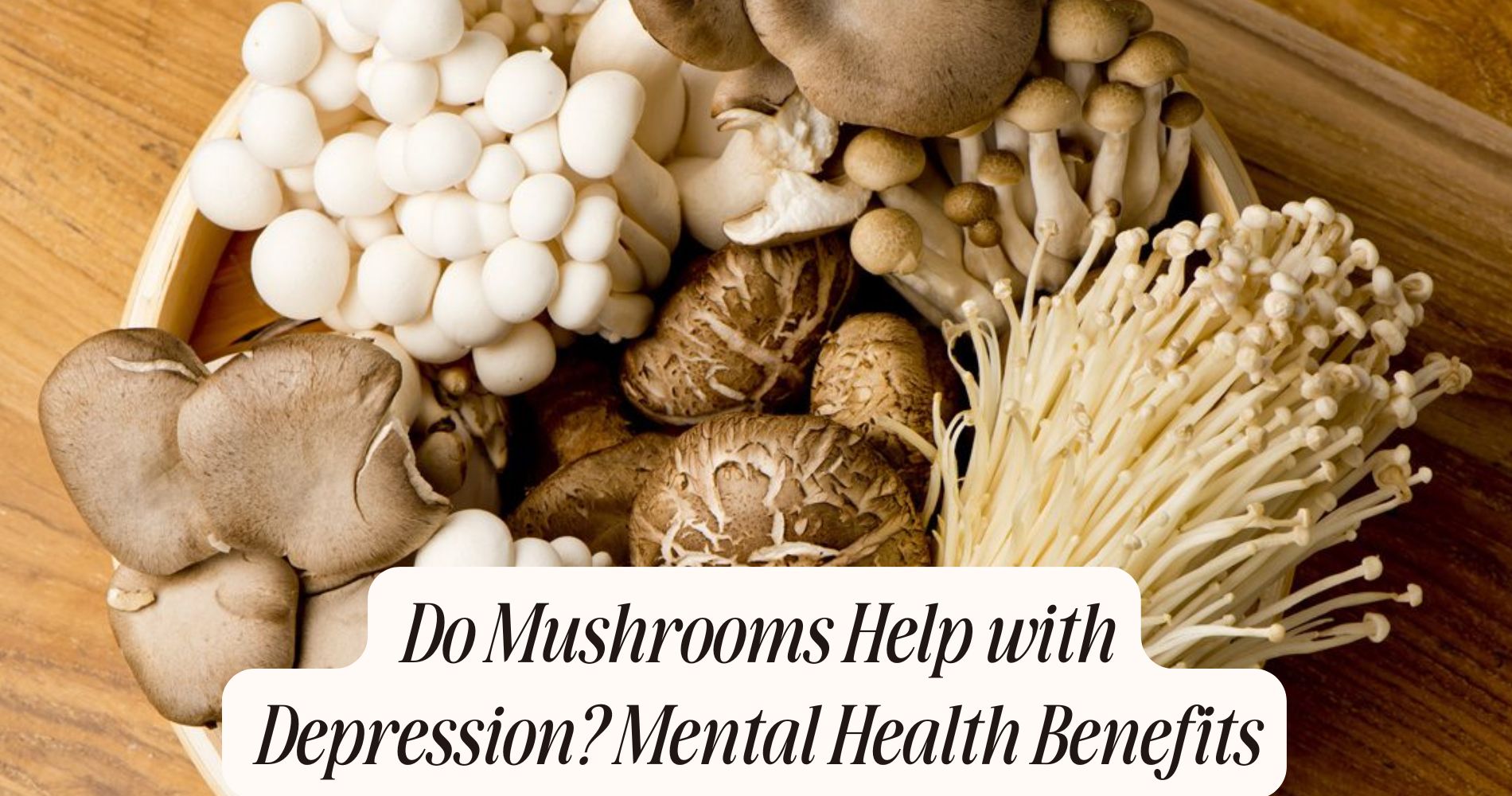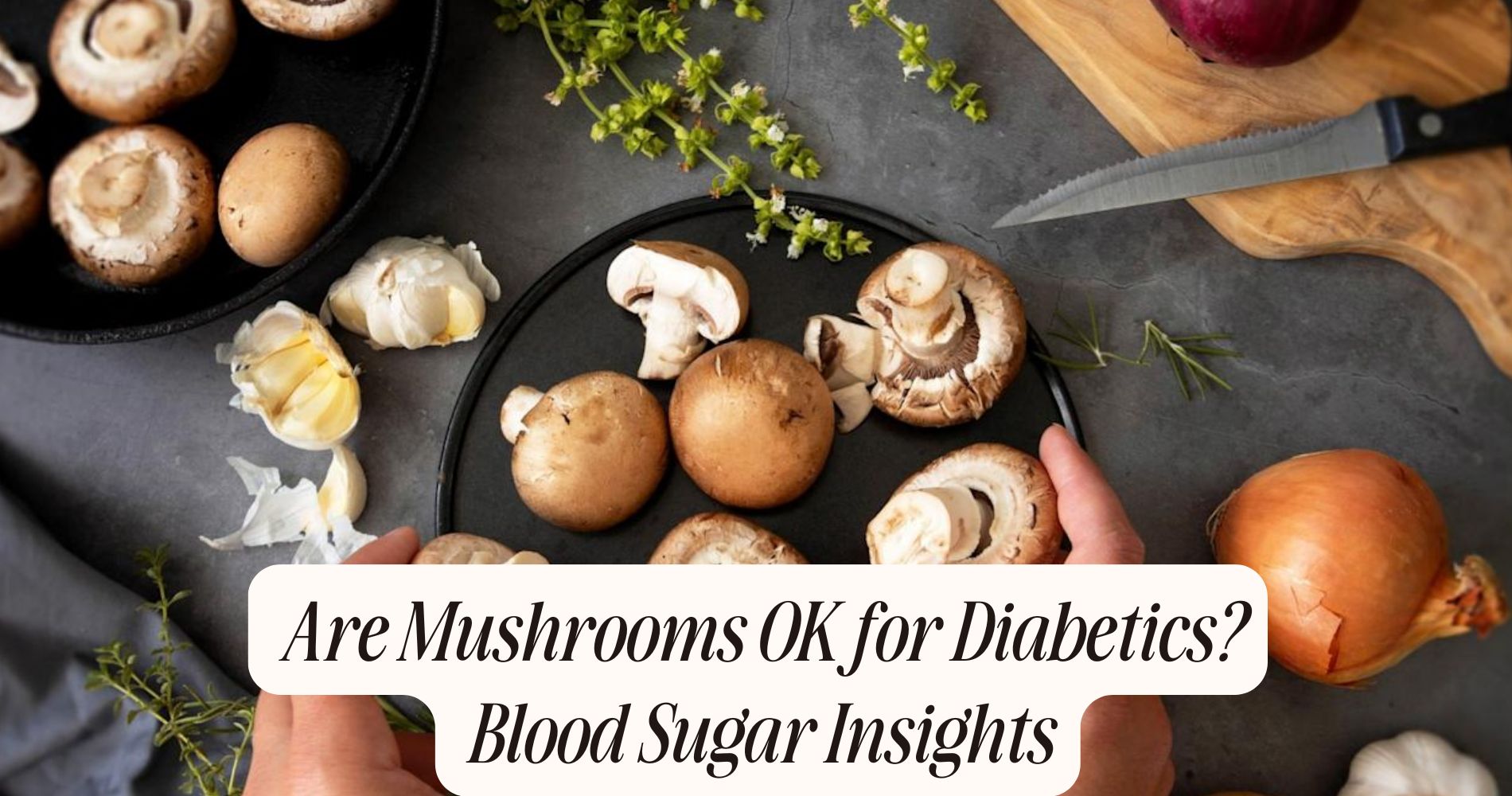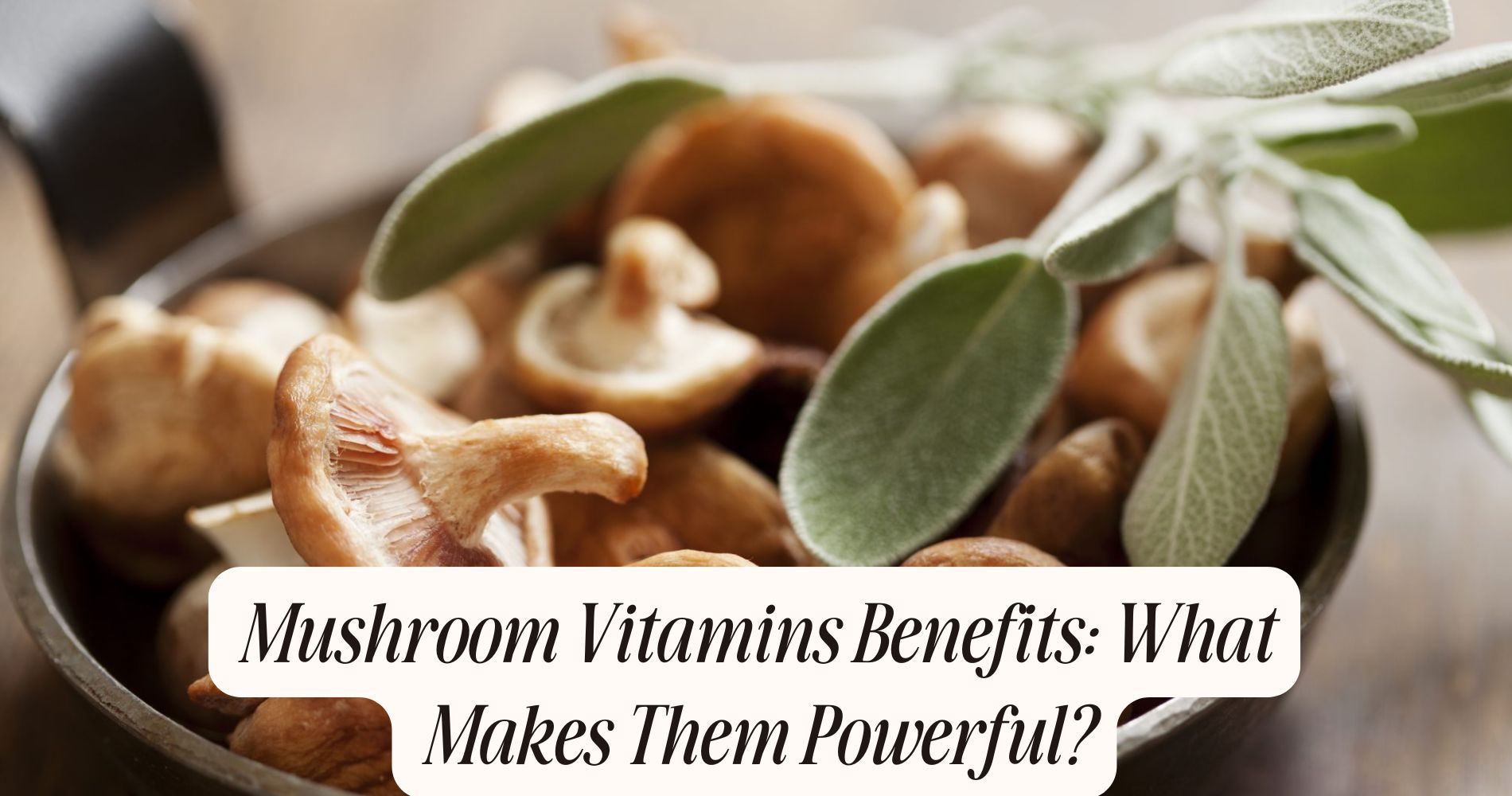
Do Mushrooms Help with Depression? Mental Health Benefits
Do mushrooms help with depression? Magic mushrooms, containing psilocybin, show evidence-based potential in treating depression by altering neural pathways and improving emotional processing. They're most beneficial under strict dosage control and professional supervision due to varying individual responses. While historical insights from ancient practices support their therapeutic use, modern clinical studies highlight significant symptom reduction. Understanding both the benefits and risks is essential, and further insights might reveal how mushrooms compare to traditional treatments and what future developments hold.
Understanding Psilocybin: The Active Compound in Magic Mushrooms
Psilocybin, the primary psychoactive compound found in magic mushrooms, has garnered significant attention for its potential therapeutic benefits in mental health.
When you consider psilocybin effects, it's important to recognize its ability to alter perception and mood, which can be beneficial in treating conditions like depression and anxiety. Clinical trials have shown promising results, suggesting that psilocybin may reduce symptoms of these disorders.
However, understanding mushroom safety is imperative. Ensuring a controlled environment and proper dosage is crucial to minimize adverse effects, such as confusion or panic, which can occur if misused.
The Science Behind Psilocybin and Brain Chemistry
As you explore the potential therapeutic benefits of psilocybin, understanding its impact on brain chemistry becomes essential.
Psilocybin, a psychedelic compound, influences brain connectivity by altering neural pathways. It enhances communication between different brain regions, potentially leading to improved mood regulation.
Clinical studies indicate that psilocybin can reduce symptoms of depression by modulating the activity of the default mode network, which is often overactive in those with mood disorders. This network is associated with self-referential thoughts and rumination.
Historical Uses of Mushrooms in Mental Health Treatment
Though often overlooked, the use of mushrooms for mental health treatment has ancient roots that provide valuable insights into their potential therapeutic benefits.
Historically, various cultures have utilized mushrooms in spiritual rituals and healing practices. These ancient practices often involved psilocybin-containing mushrooms, revered for their mind-altering properties. Indigenous tribes in Central and South America incorporated them into ceremonies to promote psychological well-being and spiritual connection.
Clinical evidence suggests these rituals aimed to alleviate emotional distress and enhance mood stability. Observing these historical uses offers a diagnostic focus on understanding how such practices may alleviate symptoms of depression.
Recent Studies on Psilocybin and Depression
While exploring the relationship between psilocybin and depression, recent studies have provided compelling evidence of its potential therapeutic effects. Psilocybin therapy has gained attention for its role in depression relief. Clinical trials have shown promising results, with participants experiencing significant reductions in depressive symptoms.
In controlled settings, patients report enhanced mood and emotional processing, which are essential for long-term mental health improvement. These studies highlight psilocybin's impact on brain connectivity and emotional regulation, suggesting its potential utility in treating treatment-resistant depression.
Importantly, the diagnostic focus includes monitoring for safety and efficacy, emphasizing controlled dosing and professional supervision. As researchers continue to investigate psilocybin therapy, these findings contribute to a growing body of evidence supporting its use as a novel approach for depression relief.
Comparing Psilocybin to Traditional Antidepressants
Building on the insights from recent studies on psilocybin's impact on depression, it's important to examine how this novel treatment stacks up against traditional antidepressants.
Psilocybin efficacy, in a clinical setting, shows promising results. Unlike conventional antidepressants, which often require daily dosing and weeks to take effect, psilocybin may induce rapid improvements in mood with few treatments.
When you compare it to selective serotonin reuptake inhibitors (SSRIs), psilocybin has demonstrated a sustained reduction in depressive symptoms.
However, the antidepressant comparison reveals limitations, including the need for controlled environments and professional supervision due to potential psychological effects.
While traditional antidepressants are well-researched and widely accessible, psilocybin's role remains experimental, necessitating further investigation into its long-term safety and mechanism of action.
Potential Benefits of Mushroom-Based Treatments for Depression
When considering the potential benefits of mushroom-based treatments for depression, psilocybin emerges as a promising candidate. Clinical studies suggest that psilocybin, a psychedelic compound in certain mushrooms, could greatly reduce depressive symptoms.
You might find that this mushroom therapy works by altering brain connectivity, potentially resetting neural circuits linked to mood regulation. This could lead to improved mental wellness, offering a complementary approach to traditional antidepressants.
Evidence indicates that psilocybin's effects may last longer than those of standard treatments, providing sustained relief. Diagnostic evaluations have observed decreased depressive scores in participants, enhancing the therapeutic landscape.
Risks and Considerations in Using Mushrooms for Mental Health
Although mushroom-based treatments for mental health hold promise, it's important to take into account the associated risks and precautions. Safety concerns are paramount, particularly in the context of psilocybin mushrooms.
You must adhere to strict dosage guidelines, as incorrect dosages can lead to adverse effects, including heightened anxiety or psychosis. Clinical trials emphasize starting with minimal doses under professional supervision to monitor reactions.
It's imperative to evaluate individual health history, as pre-existing mental health conditions may exacerbate potential risks. Moreover, the purity and source of mushrooms are significant; unregulated products could contain harmful contaminants.
Always consult a healthcare provider before evaluating mushrooms for depression, as they can guide you based on current evidence and your unique diagnostic needs.
Legal Status and Accessibility of Psilocybin Mushrooms
Understanding the legal status and accessibility of psilocybin mushrooms is essential for informed decision-making regarding their use in mental health treatments. Legal frameworks vary markedly across regions, impacting how these substances can be accessed and used.
In some places, psilocybin mushrooms remain classified as controlled substances, creating barriers to their application in therapeutic settings. However, recent clinical studies demonstrating their potential benefits have prompted legal reforms in certain jurisdictions, allowing for limited medical use under strict regulations.
Accessibility issues persist, often due to inconsistent policies and the need for specialized licenses to administer psilocybin. This can limit treatment options for patients seeking alternative therapies for depression.
Ensuring compliance with local laws and understanding the dynamic legal landscape is key for safely integrating psilocybin into mental health care.
The Role of Therapy in Psilocybin-Assisted Treatment
Integrating therapy into psilocybin-assisted treatment is essential for maximizing therapeutic outcomes.
You find that combining various therapy modalities, like cognitive-behavioral therapy (CBT) and mindfulness-based approaches, enhances the overall efficacy of psilocybin sessions.
In therapeutic settings, therapists guide you to explore underlying emotional issues safely, guaranteeing that the psychedelic experience translates into meaningful psychological change.
Evidence suggests that the supportive environment provided by qualified therapists during and after sessions helps integrate insights, reducing depressive symptoms.
By tailoring the therapeutic process to individual needs, you can address both the neurobiological and psychosocial aspects of depression.
Diagnostic focus on personalized treatment plans guarantees that interventions are aligned with specific mental health goals, leading to sustainable improvements in well-being.
Future Directions in Mushroom Research for Mental Health
As research into the mental health benefits of mushrooms progresses, scientists are increasingly focusing on identifying precise mechanisms at play. You should expect future research to prioritize understanding how specific compounds in mushrooms, like psilocybin, interact with brain chemistry.
These studies aim to uncover new therapeutic applications for treating depression and anxiety. Researchers will likely explore dosage optimization and long-term effects to guarantee safety and efficacy.
Moreover, advancements in neuroimaging and genetic profiling will help pinpoint which individuals might benefit most from mushroom-based interventions. By analyzing brain activity and genetic markers, scientists can tailor treatments, enhancing outcomes.
The future directions in mushroom research hold promise for developing personalized approaches, potentially revolutionizing how mental health conditions are diagnosed and treated. Stay informed as this field evolves.
Elevate Your Mood with SUPER MUSHROOM GUMMIES
Looking for an easy way to harness the power of mushrooms for mental clarity and emotional balance? SUPER MUSHROOM GUMMIES by Well Gummies make it effortless! Packed with 10 functional mushrooms, these delicious wild berry-flavored gummies support a calmer mind, sharper focus, and sustained energy—without jitters or crashes. Whether you're managing stress or simply looking to enhance cognitive function, these vegan-friendly gummies are a convenient way to fuel your body and brain naturally. Try them today and experience the difference!
Frequently Asked Questions
Can Mushrooms Affect Other Mental Health Conditions Besides Depression?
You may find certain mushroom types influencing other mental disorders. Studies suggest compounds in mushrooms can impact anxiety, PTSD, and OCD. It's essential to reflect on evidence-based research when evaluating mushrooms' potential benefits for various mental health conditions.
Are There Any Dietary Restrictions When Using Mushrooms for Depression Treatment?
When using mushroom varieties for treatment, you've got to follow specific dosage guidelines. While there aren't strict dietary restrictions, consult with a healthcare professional to guarantee safety, especially if you're on medications or have dietary concerns.
How Do Mushrooms Interact With Other Medications?
You should consider mushroom interactions with your current medications. Always consult your healthcare provider to guarantee medication safety. Mushrooms can affect how some drugs work, potentially altering their efficacy or causing side effects. Stay informed.
What Are the Potential Side Effects of Long-Term Mushroom Use?
When considering long-term effects of mushroom use, you're at risk for psychological dependency. Dosage considerations are essential; improper use may lead to cognitive impairments or mood disturbances. Always consult a healthcare professional before starting prolonged use.
Can Mushrooms Help With Anxiety as Well as Depression?
Mushroom types like psilocybin show promising anxiety relief in clinical settings. You'll find that studies suggest potential benefits, but always consult a healthcare professional for a diagnostic focus and individualized treatment plan before considering their use.
Conclusion
You've explored psilocybin's potential as a promising ally against depression. Evidence suggests it can positively influence brain chemistry, offering an alternative to traditional antidepressants. However, it's essential to weigh its benefits against risks, including legal and accessibility challenges. Therapy plays an important role in maximizing its effectiveness. As research advances, psilocybin may emerge as a viable mental health treatment. Always consult healthcare professionals to guarantee safe and informed use. The journey of discovery is ongoing.




